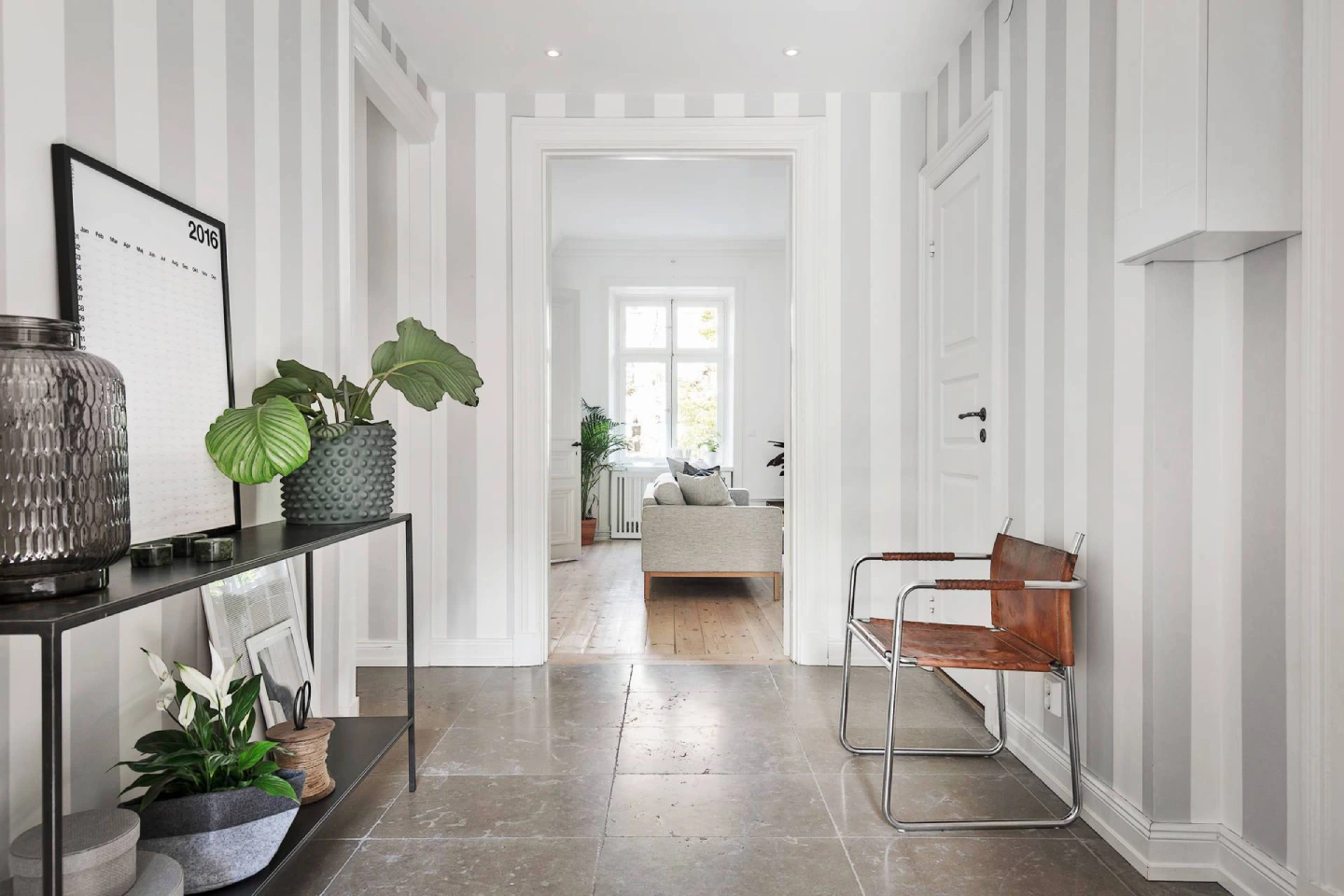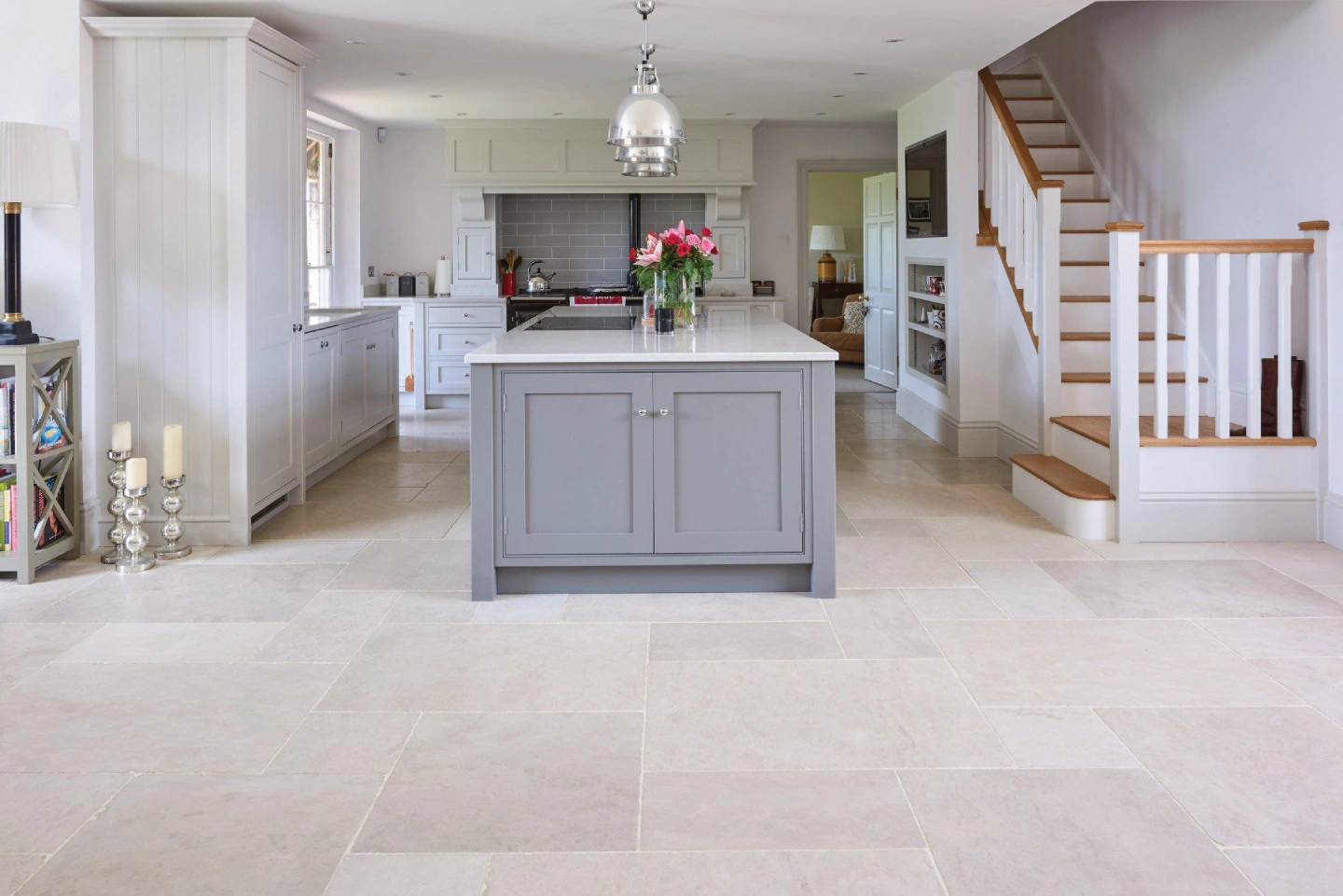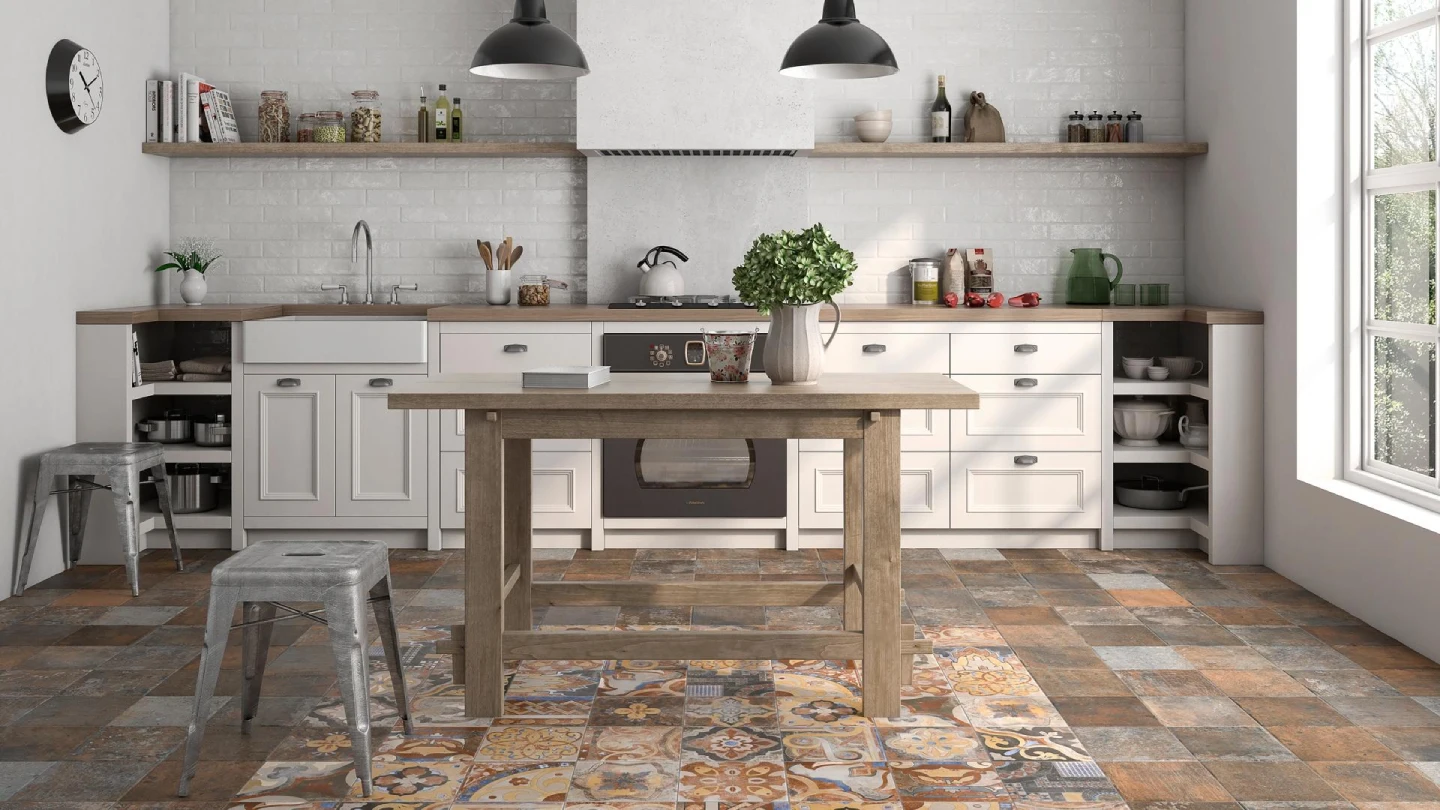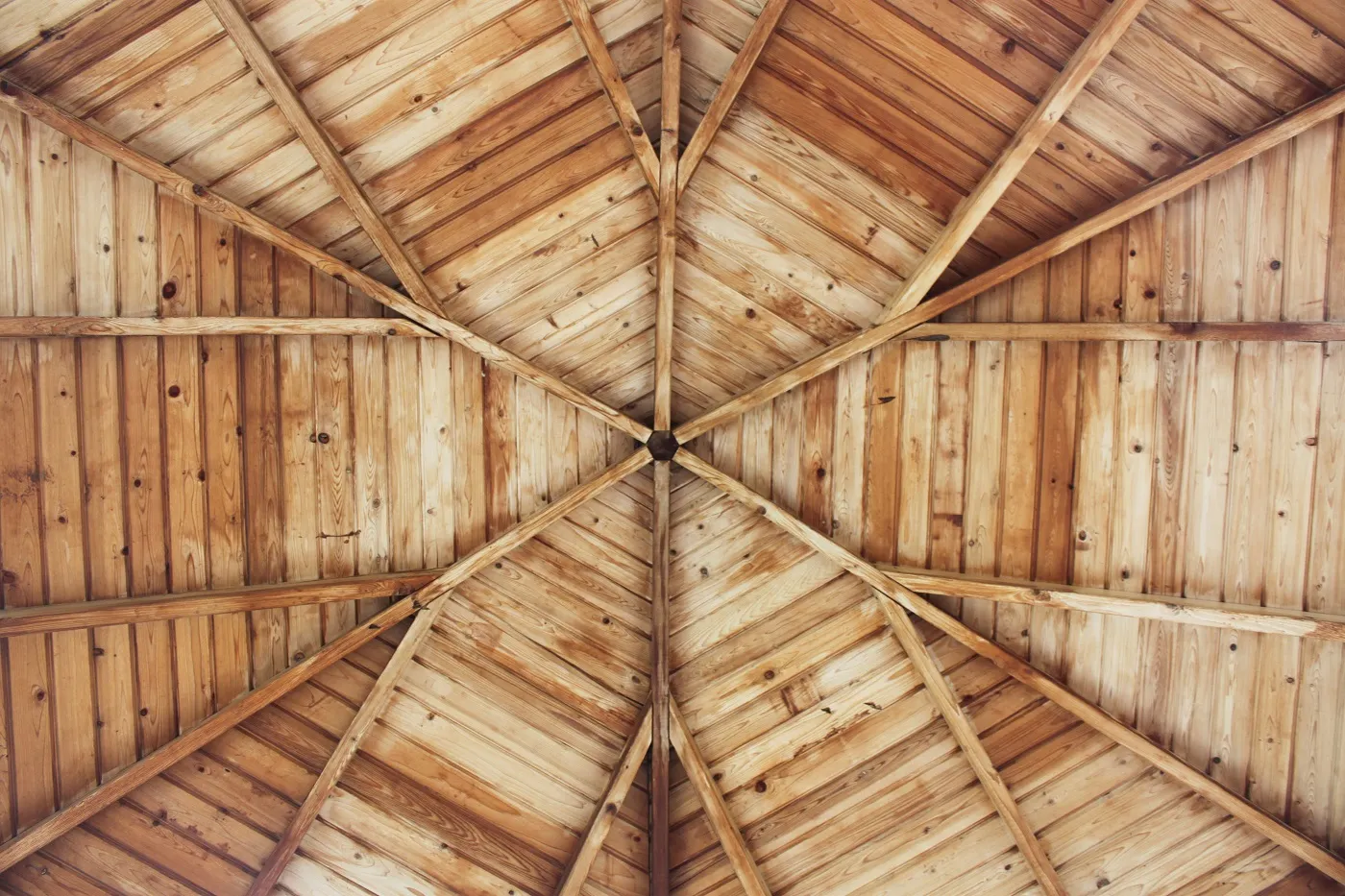Limestone Flooring Pros And Cons: Is it a good choice?

The limestone flooring, with its natural beauty and timeless aura, is gaining popularity in the residential sector, where people love to have their places infused with sophistication. In this concise manual, we look into the tension between practicality and luxury on which limestone is based and how it can be applied in maintenance, cost evaluation, and other interior design decorative techniques. Whether you want to use limestone flooring for the kitchen, bathroom or any other room in your home, this article is here to give you vital information that will affect your decision regarding its use in your home. The coziness and elegance of limestone make it so appealing, and you get a chance to experience this whenever you are in your house.
What are the disadvantages of limestone flooring?
Though limestone flooring is a visual treat and a long-standing historical favorite, it comes with a series of adverse effects that homeowners should consider before installation. One disadvantage is its softness. Thus, it quickly gets scratched, and owners cannot remove it because of its softness. This mainly happens in high-traffic areas. Being soft also means that furniture could scratch the surface, and if the weight is too much, it could break the guitar.
On the other hand, maintenance is also a drawback. Calcium carbonate sealer must be applied regularly to prevent the stone from turning yellow because of stains and water. Without routing sealing of the stone surface, the porous stone will absorb spills and lead to stains. As the remaining concern is maintaining cleanliness, limestone also needs care and regular cleansing to preserve its look.
Maintenance and continuous costs are other things you should consider. The price is the primary restriction of limestone flooring, as it is usually more expensive than some other alternatives installed initially and needed for upcoming repairs and restoration. On the other hand, the installation of ceramic tiles adds more weight to limestone tiles, making them even more cumbersome to handle and often requires hiring a professional to install them.
In the end, limestone’s weak point is that it is less durable than hard stones like granite or marble, which are more robust. It is not recommended for those who are not keen on the occasional repair or replacement, as the flooring is built to last long.
Is limestone a good choice for flooring?

Lined with stone, the floor is an innate and innovative style that can address the beauty of any house. Its eternal elegance, variety of hues, and manner of design make it both an overall favorite and an option for different interior schemes. The longest-lasting quality of limestone is its durability; it has a high degree of strength that resists all kinds of daily wear and tear. Additionally, limestone structures retain their shape for a long thus, they do not wear away quickly.
Limestone is one of the natural stones that are demanded cheaply by many people. It shall provide a luxurious look that is not associated with the high expenses of other natural stones. Limestone stone, on the other hand, is known to be cleaner than others and much easier to clean and maintain. In comparison, it is resistant to mold and bacteria growth, which makes it a perfect choice for bathrooms or patios that serve you naturally without worrying about the mess caused by mold.
Is limestone flooring hard to clean?
Not only does limestone tend to boost the value of your home, but it also has an enduring and exquisitely majestic effect on your home. Along with its nature-related, earthy-appealing features, it provides a modern yet traditional design character that ensures a clean-cut image and satisfaction based on the chosen color palette and design style needed to create a necessary atmosphere in a room.
The majestic look and resilience of the limestone flooring is what draws home and business owners to it. Limestone tile is a natural flooring material that is used primarily for its long-lasting capabilities. However, limestone also needs some effort to maintain its elegant and absorbing appearance. Due to its porous nature, limestone can be a spill absorber. Therefore, sealing is necessary for extra protection. Limestone tiles should also be vacuumed or swept up regularly to prevent the grinds that may scratch the floor. When done correctly, limestone flooring has a low maintenance level. It must only be appropriately installed, sealed, and maintained as a standard care routine, and then it can last for years. Regular maintenance and timely response to any visible wear and tear signs are vital and consistent factors in the practical lifeline of the flooring.
Are limestone floors expensive?

Limestone tiles combine inexpensiveness with luxury, and, like other natural stone alternatives, they are very affordable and prestigious. The cost of limestone flooring can be ambiguous if one only considers the stone’s quality, the installation’s complexity, and the finish chosen.
Those looking to taste a high-end look without the considerable cost can turn to limestone, which offers stunning visual and practical solutions to their needs. It is provided in various finishes — polished to brushed ones – and each texture and look adds its unique signature to complement a range of design preferences. Limestone is a very adaptive type of stone if it comes to cutting it and designing it in tiles and slabs of different sizes, which makes it perfectly match dissimilar designs and personal preferences.
Although limestone is a natural stone, it generally costs less than some other types of rocks; however, some funds should be allocated to cover the maintenance costs related to its long-term upkeep. Limestone is usually porous, and requires a sealing layer to prevent staining and damage. Using limestone tiles in homes that need repair and maintenance and periodic professional cleaning can be costlier.
Is limestone suitable for kitchen flooring?
Limestone flooring is very popular with consumers since it doesn’t wear down and the cleaning task is simple. Hence, it is the ideal solution for such a high-traffic area. It is made of stone and doesn’t require any painting or care, giving any kitchen décor a beautiful touch of naturalness and timelessness. Limestone is heat-conserving, meaning it can adjust to the roof temperature, allowing the formation of a pleasant surface. Furthermore, underfloor heating systems can be laid before the limestone to intensify the temperature in the room, especially during the winter season.
Stone is very versatile, which means it can match different areas of a kitchen, whether rustic or modern. The uniqueness of each tiling stone is also present, boasting separate and concealed coloring and texture elements that create a beautiful and striking flooring experience. Limestone offers many finishes and sizes so that buyers can choose from various aesthetics and specific design features.
Indeed, attention should be paid to limestone, a porous stone protected with sealant, before the surface gets stained or damaged. Maintenance is unavoidable in a long-term mission to keep the stone’s attractiveness through the ages. Spills should be wiped off within minutes, and only the pH-neutral degreaser should be used so as not to erode the surface.
Is limestone ok for a bathroom floor?
Limestone is one of the bathroom flooring options; it is graceful and adds a sense of warmth to the place. Its strength and the fact that it doesn’t affect the viability of anything around it make it ideal for bathrooms with high moisture levels. After properly being installed, the limestone can handle the area’s humidity and water exposure, thus making it a logical choice for this room.
The stone’s porous property means that water will not be absorbed. Limestone is a self-sealing natural material during application. Still, it will need resealing every several years to safeguard it from moisture damage, should there be traces of liquid or moisture. Due to the diversity of finishes that this material has, such as a non-slip finish, which adds to bathroom safety, homeowners can choose the textures they desire
The beauty of limestone flows from its complex patterns and warm color scheme, which can match many various styling choices, either traditional or ultra-modern.
In terms of price, limestone can be considered a more cost-effective option than some other stone types, and it can also enhance the site values. It is vital to take into account the eventual maintenance costs, bearing in mind that periodical cleaning and checks are compulsory to ensure the building’s attractive and functional appearance.
Limestone Tiles FAQ
Are limestone floors high maintenance?
Limestone is not necessarily high maintenance, with proper routine care, like vacuuming and cleaning stains the last a very long time.
How long does limestone last?
Limestone tiles are extremely durable, if not exposed to regular railings and some basic care limestones last a thousand years.
What weakens limestone?
Limestone is highly durable but, one of the only things that can dissolve this flooring is even slightly acidic rain. Limestone is a carbonate stone and they do absorb water so they can be damaged when exposed to acidic water.
Is limestone waterproof?
Yes, limestone is waterproof if installed properly and maintained. Water spills should be cleaned and should not stay on the floor surface for too long.



Did you find what you were looking for?